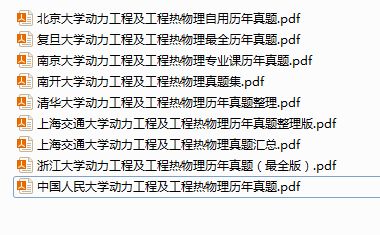Title: Mastering the 260Point Physics Graduate Entrance Examination
Mastering the 260Point Physics Graduate Entrance Examination
Preparing for a physics graduate entrance examination, especially aiming for a score of 260, requires a comprehensive understanding of the subject along with strategic preparation. Here's a detailed guide to help you navigate through the exam:
Before diving into preparation, it's crucial to understand the structure of the examination. Typically, physics graduate entrance exams consist of sections covering core areas such as Classical Mechanics, Electromagnetism, Quantum Mechanics, Thermodynamics and Statistical Mechanics, and Mathematical Methods.
Developing a strategic preparation plan is essential to efficiently cover all the topics. Here's a suggested plan:
To score well, ensure comprehensive coverage of the following key topics:
- Classical Mechanics: Newtonian mechanics, Lagrangian and Hamiltonian dynamics, central forces.
- Electromagnetism: Maxwell's equations, electrostatics, magnetostatics, electromagnetic waves.
- Quantum Mechanics: Schroedinger equation, quantum harmonic oscillator, angular momentum, hydrogen atom.
- Thermodynamics and Statistical Mechanics: Laws of thermodynamics, kinetic theory of gases, statistical ensembles.
- Mathematical Methods: Complex analysis, linear algebra, differential equations, Fourier analysis.
Adopting effective study techniques can significantly enhance your preparation:
- Active Learning: Engage actively with the material through summarization, teaching others, and problemsolving.
- Group Study: Collaborate with peers to discuss concepts, solve problems, and clarify doubts.
- Regular Revision: Schedule regular revision sessions to reinforce learning and retain information.
- Visualization: Utilize visual aids such as diagrams, graphs, and animations to grasp complex concepts.
- Seek Help: Don't hesitate to seek help from professors, tutors, or online forums when encountering difficulties.

On the day of the examination, employ the following strategies to maximize your performance:
- Time Management: Allocate time wisely to ensure completion of all sections within the stipulated time.
- Focus on Strengths: Start with sections you are most confident about to build momentum.
- Answer Accuracy: Prioritize accuracy over speed while attempting questions to minimize errors.
- Review: Utilize any remaining time to review answers and doublecheck calculations.
Scoring 260 points in a physics graduate entrance examination demands dedication, strategic planning, and thorough preparation. By understanding the exam structure, covering key topics comprehensively, adopting effective study techniques, and employing exam day strategies, you can enhance your chances of achieving your target score. Remember, consistent effort and perseverance are the keys to success.
